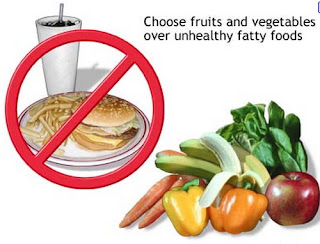In 90 percent to 95 percent of high blood pressure cases, the American Heart Association says there's no identifiable cause. This type of high blood pressure, called essential hypertension or primary hypertension, tends to develop gradually over many years.
The other 5 percent to 10 percent of high blood pressure cases are caused by an underlying condition. This type of high blood pressure, called secondary hypertension, tends to appear suddenly and cause higher blood pressure than does primary hypertension. Various conditions can lead to secondary hypertension, including kidney abnormalities, tumors of the adrenal gland or certain congenital heart defects.
Certain medications — including birth control pills, cold remedies, decongestants, over-the-counter pain relievers and some prescription drugs — also may cause secondary hypertension. In a 2005 study, women who took an average of 500 milligrams or more of acetaminophen (Tylenol, others) daily over several years were more likely to develop high blood pressure than were women who didn't take any acetaminophen. It's not known if the same holds true for men.
Various illicit drugs, including cocaine and amphetamines, also can increase blood pressure.
What Causes Hypotension(low blood pressure)?
Hypotension is caused by conditions or events that interfere with the body's ability to control blood pressure.
Orthostatic Hypotension
Orthostatic hypotension has many causes. Sometimes, two or more causes combined will result in hypotension.
Dehydration is the most common cause of orthostatic hypotension. Dehydration occurs when the body loses more water than it takes in. People can become dehydrated because of:
* Not drinking enough fluids
* Fever
* Vomiting
* Severe diarrhea
* Excessive sweating from strenuous exercise
Some medicines used to treat high blood pressure and heart disease can make it more likely that a person will develop orthostatic hypotension. These medicines include:
* Diuretics
* Calcium channel blockers
* Angiotensin-converting enzyme (ACE) inhibitors
* Angiotensin II receptor blockers
* Nitrates
* Beta blockers
The other 5 percent to 10 percent of high blood pressure cases are caused by an underlying condition. This type of high blood pressure, called secondary hypertension, tends to appear suddenly and cause higher blood pressure than does primary hypertension. Various conditions can lead to secondary hypertension, including kidney abnormalities, tumors of the adrenal gland or certain congenital heart defects.
Certain medications — including birth control pills, cold remedies, decongestants, over-the-counter pain relievers and some prescription drugs — also may cause secondary hypertension. In a 2005 study, women who took an average of 500 milligrams or more of acetaminophen (Tylenol, others) daily over several years were more likely to develop high blood pressure than were women who didn't take any acetaminophen. It's not known if the same holds true for men.
Various illicit drugs, including cocaine and amphetamines, also can increase blood pressure.
What Causes Hypotension(low blood pressure)?
Hypotension is caused by conditions or events that interfere with the body's ability to control blood pressure.
Orthostatic Hypotension
Orthostatic hypotension has many causes. Sometimes, two or more causes combined will result in hypotension.
Dehydration is the most common cause of orthostatic hypotension. Dehydration occurs when the body loses more water than it takes in. People can become dehydrated because of:
* Not drinking enough fluids
* Fever
* Vomiting
* Severe diarrhea
* Excessive sweating from strenuous exercise
Some medicines used to treat high blood pressure and heart disease can make it more likely that a person will develop orthostatic hypotension. These medicines include:
* Diuretics
* Calcium channel blockers
* Angiotensin-converting enzyme (ACE) inhibitors
* Angiotensin II receptor blockers
* Nitrates
* Beta blockers
To know how to cure BLLOOD PRESSURE, wait for my next post.
Thanks







